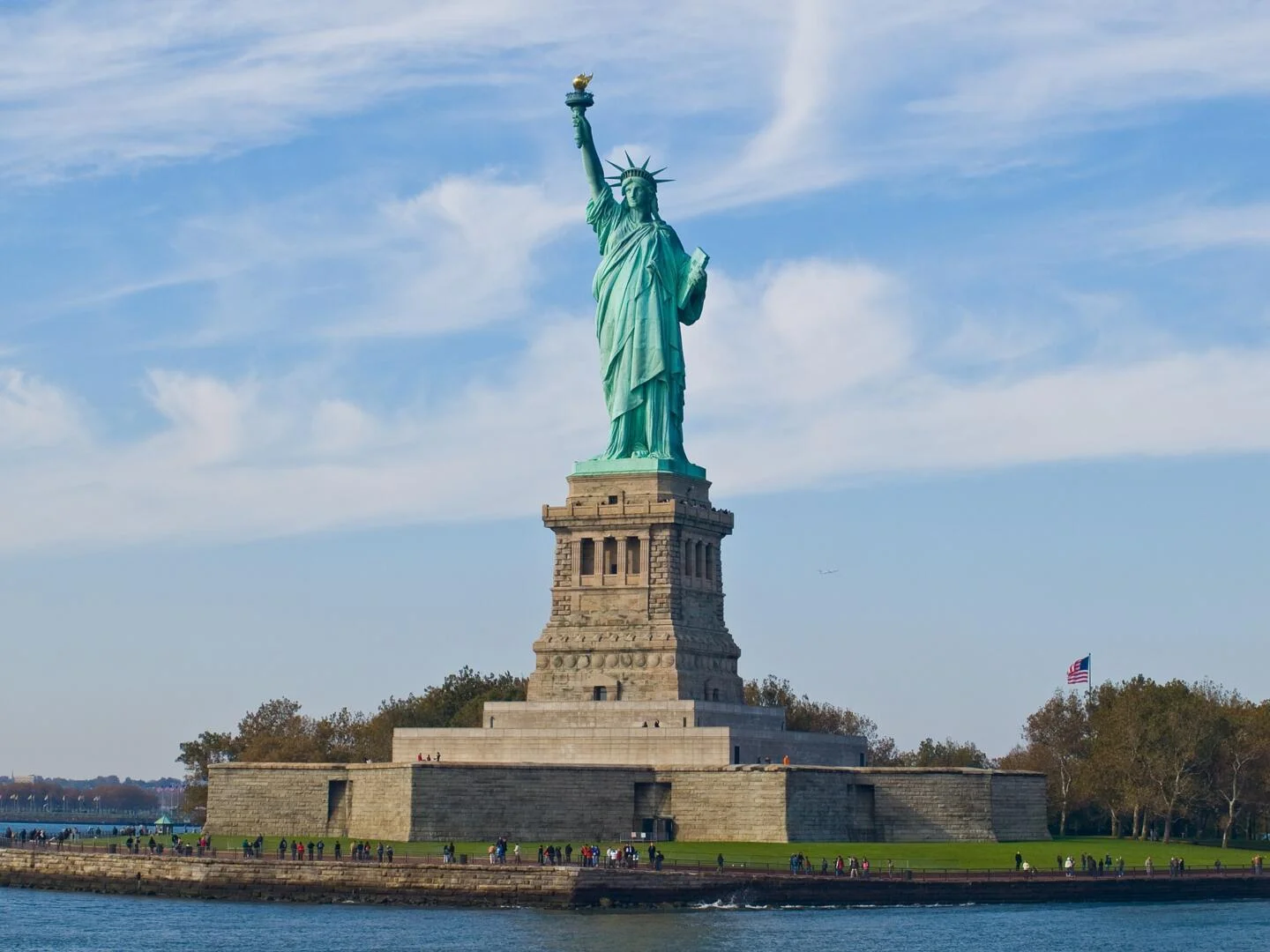It is very likely that all countries believe their national myths regarding what makes them special if not unique. While the German national anthem Deutschland Uber Alles (Germany above all) was written in the 19th century during a period in which there was a growing movement to unify the various German speaking principalities into one country, by the 20th century it was seen to encourage patriotism as well as loyalty to the new nation. When I was a guest of the German government in the 1990s, I was told by officials that the song was no longer intended to reflect any degree of German superiority and that the more nationalistic stanzas were by then omitted, very probably because of its association with the Nazi era. What I also found interesting was a conversation I had with several of these officials who expressed deep regret regarding the treatment of the Jews during the Nazi reign and how much Jews had contributed to Germany, especially to culture, over many years. They then compared that to the influx of Turks and other Muslims who were “overwhelming” Germany as well as the government, which they were in fact part of, which was much too lenient regarding who they were allowing in.
It is, of course, not only the lyrics of national anthems that often reflect how nation’s view themselves or perhaps wished to be viewed by others. The phrase, Liberty, Equality, Fraternity, first used during the French revolution of the late 18th century, remains the motto of France as well as ironically of Haiti. Very stirring words, no doubt, but I do imagine that a good number of immigrants from French speaking African and Southeast Asian countries living in France might question the claim of fraternity in a country whose white Catholic majority is increasingly becoming more hostile to them as reflected in recent election results and opinion polls. While the official motto of the United States as adopted by Congress is E Pluribus Unum in Latin or one out of many, it now seems that language may not accurately reflect the values of too many Americans including the current resident of the White House as well as many Republican legislators.
Most Americans probably believe that ours has always been and remains a place that welcomes all those who wish to live where you are not judged by your race, nationality, ethnicity, religion, political beliefs, your financial status and more recently your sexual orientation. I recall as a child seeing a short documentary film based on a poem written by Abel Meeropol, the man who adopted Julius and Ethel Rosenberg’s sons upon their parent’s arrest and execution. It was turned into a stirring song recorded by Frank Sinatra entitled The House I Live In. One of the stanzas is as follows: The house I live in, my neighbors white and black, the people who just came here or from generations back, The town hall and the soapbox, the Torch of Liberty, A home for all our children: that’s America to me. The question before us today is this what America is? Perhaps it would be useful to look at if it always was as welcoming as is our national myth or at least our wishful thinking.
The history of Jews desiring to come to our shores predates the founding of the nation. We may be less familiar with the fact that in the 17th century the Dutch, the Spanish, and the Portuguese along with the English and the French, were major competing colonizing powers who fought wars with one another. Brazil had been settled by the Portuguese but lost it to the Netherlands. Compared to the often-deadly anti-Jewish attitudes of Catholic Spain and Portugal the Protestant Dutch were relatively tolerant of Jews. But this is not at all to suggest that they were free of antisemitic feelings. When the Portuguese recaptured Brazil in 1654 the small Jewish community living there were understandably fearful that they would be subjected to the antisemitism that forced them to emigrate to the “new world” to begin with. So slightly over twenty Jews who did not opt to remain in Brazil by publicly converting, as many did or at least claimed to, came north to the nearest Dutch colony of New Amsterdam. What they may not have fully understood was that animus to Jews was not only shaped by religious prejudice but also what was believed regarding Jewish morality and ethics. Peter Stuyvesant, the appointed Governor of the colony, made it immediately clear that he did not want his domain “infested” by the Jews. He was no lover of Catholics or Quakers either or of the native people who were obviously here before the Dutch but Jews apparently were the most detested of those who he wished to keep out of New Amsterdam. In fact, in one of his appeals to his superiors in the Netherlands to allow him to send the Jewish refugees back to Europe he argued that once you accepted Jews, the papists, a demeaning term for Catholics, would follow. Furthermore, he hoped that “the deceitful race, — such hateful enemies and blasphemers of the name of Christ, — be not allowed to further infect and trouble this new colony.” We also know from their letters sent back to England that even the early English Quakers led by William Penn and thought of as being champions of religious tolerance were fearful of large numbers of Irish Catholics overwhelming their colony of Pennsylvania.
Much like the ugly attitudes we have been seeing re-emerging today, efforts to cleanse the colony of people solely because of who they were and nothing they may have done were widespread. And we Jews were the first to be the target of deportation. As is well known it was only through the intercession of prominent Jewish investors in the Dutch West Indies company that owned the Dutch colonies that prevented a very unhappy Stuyvesant from succeeding in making what was to eventually become the most Jewish populated region of the world outside of Israel free of Jews. As a disgraced Philadelphia member of Congress once said “money talks”. One cannot help but wonder if sizable financial contributions from Hispanic wealthy investors might not convince Trump to tell ICE agents to stop taking Latino looking people off the streets.
Tragically the desire to deny entry into America eventually led to the deaths of countless numbers of Jews in Europe several centuries later. I recently saw a documentary film about the failed attempts by Otto Frank, the father of Anne, to allow at least his daughters to be saved by being permitted to come to America.
Surprisingly Frank even had relationships with prominent wealthy American businessmen which proved fruitless. As we know, such important connections were not usually enough to save the lives of even Jewish children. This hostility to the acceptance of more immigrants, especially from eastern and southern Europe as well as Asia, became much more common by the end of the 19th century. In 1894 a small group of elite Bostonians met to form an organization they named the Immigration Restriction League. In no more than twenty years they managed to succeed in the passage of numerous pieces of legislation designed to greatly limit the entry of undesirable nationalities into the US. By then, for the most part, the Irish Catholics who initially were the target of much hatred, were considered less of a threat to American homogeneity but not so the Jews and to a lesser degree even “dark skinned Italians” who were accused of being prone to violent crime. But even enlightened elected officials like President Theodore Roosevelt issued a warning that unless more American women had more children the nation would be overwhelmed by foreigners. At the same time more Jews were emigrating to the US, largely to escape the pogroms that were sweeping through countries like Russia, Poland, Hungary, and Romania. While antisemitism was hardly unknown in the US the increase in anti-Jewish sentiments greatly increased along with the growing Jewish population. Co-existent with the traditional animus toward Jews based on religious intolerance and the age-old belief in Jewish greed, Jews were increasingly accused of being Communists and thus a danger to American security. Radio announcers such as Father Charles Coughlin and Gerald L.K. Smith filled the airways with accusations about the Jewish threat to America. The obvious solution would be to refuse entry to any more, especially those who wished to emigrate from Communist countries since how could we know how much they had been influenced living under communist anti-American propaganda.
It does not take all that much research to recognize that our aspiration of being the place that wants the “tired, poor, or even those “yearning to breathe free” is far from factual. Yes, there are many of us who live lives probably hardly imagined by even our grandparents. And while antisemitism has ” reared its ugly head” to use a very tired cliche only fools or profound bigots believe that America would be in any way better off if we all packed up and moved away although several other Jewish people have asked me where we would move to if we needed to.
President Trump seems to recognize that xenophobia has never been all that far from the surface since we broke from England. And while he certainly did not create it, he most assuredly fertilized those sentiments. But to paraphrase several people “xenophobia is American as apple pie” would be accurate. Like a lot of unpleasant truths, unless we refuse to accept that it is still permissible it will never not be so. And if Trump himself is not xenophobic he has played that card more than any other President in American history.
Throughout our existence there have been those, including people whose comments would probably shock us including Benjamin Franklin, who wrote of German immigrants ” they could never adopt our language or customs”. He seemingly also was concerned that there were too many who wished to immigrate here “not of our complexion”. Franklin also claimed that German women were so unattractive that an Englishman would only marry one if they had “great portions” of money. More than one colonial governor expressed the concern that European languages would overtake English and there are reports of Germans being “encouraged” by mobs to leave several communities.
While racist sentiments were common throughout the US following the emancipation of African slaves in the mid-19th century opposition to immigration of European white Christians was not that prevalent. The Chinese men who were so essential in the building of our national railroad system were now often less than welcome but they of course were not white and largely not Christian. Jewish populations were increasing especially found in large cities and in most cases were accepted if not always welcomed although politicians soon realized that upon becoming citizens Jews were often the most eager to vote. Soon, the nationality that was the most unwelcome were Mexicans who were not seen as being Caucasian and whose Catholic religious fervor was typically greater than that of other Catholics. Therefore, it is not at all surprising that Donald Trump, who may be one of the narrowest minded of all modern US Presidents, has targeted our southern neighbors as a threat in many ways. And it is revealing that he has expressed his strong preference for immigrants from Scandinavia. We should also never forget that now of his first Presidential announcement in 2015 he shockingly felt the impulse to allege that Mexicans were bringing crime, including rape to America. Since he was only convicted of sexual assault, I suppose that he considers only rape a much more grievous crime.
I hope that as we head into the New Year of 2026, we ask ourselves, especially those of us who are descendants of immigrants, why so many seemingly compassionate, decent, kind, and caring people are not horrified that we are being led by a man who not only has none of these attributes but seems to despise those who do. Just today we read that prior to being granted citizenship our government will undertake investigations to measure a permanent resident’s “moral character”. If this was not so profoundly terrifying it would be laughable given the moral character of Donald Trump. It is not too soon to dedicate ourselves to reversing the direction that our nation seems to be following nor is it too late. But the clock is ticking.
Image Credit: William Warby, CC BY 2.0, via Wikimedia Commons


